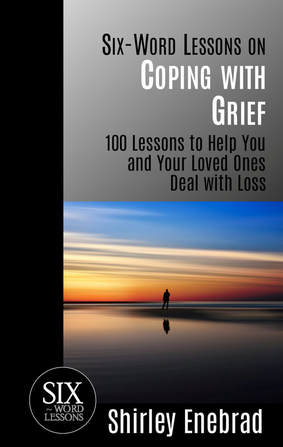 “Say not in grief he is no more but in thankfulness that he was.” Hebrew proverb I ran across this online today, and it sparked so much in my heart, brain, and soul that I had to add it to my blog. I had just been talking to my sister, Rita, about my first love, Michael. He died at a very young age. I am so grateful that Michael was. I am still heartbroken that he died so tragically, but this reminder to be thankful for the time he was on the planet lifted up my spirits. We can wallow in our grief and pain and let it consume us, or we can shift our paradigm and strive for gratitude, grace, and strength. As the proverb suggests we should be thankful for the time we did have with him or her. I personally didn’t deal with Michael’s death for a long, long time. It was too painful, so I buried my grief. As I always tell clients, you cannot run away from grief. Eventually, it will rear up and bite you on the Okole. I am proof of that fact. You have to feel it, roll with it, face it, and embrace it or it will bring you to your knees. Denial is an excellent place to hide out for a while, but it cannot last without causing a landslide of pain for you later. Be brave. Be mindful of your emotions. Be true to yourself. You don’t have to be strong for others (different story sometimes if you have kids). Be thankful and take care of you. As my client friend Candi likes to say, “put on your own oxygen mask first.” 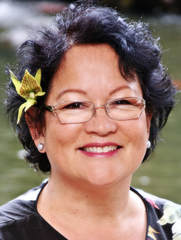 Shirley Enebrad is a Certified Grief Recovery Specialist with 25 years of experience. For her many years of work with pediatric cancer patients and those grieving the loss of a loved one, she received the Jefferson Award for Outstanding Public Service and the Angel of Hospice Award. She is the author of Six-Word Lessons on Coping with Grief and Six-Word Lessons for Surviving a Devastating Diagnosis.
0 Comments
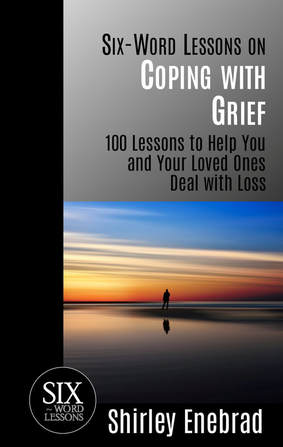 When grievers are told that they should be “moving on”, what exactly does that mean? It was the topic of intense consternation for one of my clients recently. The first anniversary of her husband’s sudden death just passed. Seemingly intelligent people that she thought cared about and understood her asked, “Are you ready to start dating again?” Or said things such as; “Don’t you think it is time to move on?” Moving on and getting on with your life are not the same things to those grieving the death of a loved one. A person can get on with living but choose not to “move on” from the loss of whoever died. Grief is individualized. You can take two people who experienced the death of their spouses at the exact same time, the same point in their relationship, from the same cause and each, will have completely different ways of coping with his or her feelings. They will not have the same depth of feelings. They will not heal at the same pace. They will not have the same experience. That is because the way we each deal with grief has been shaped by our lifetime of exposure and reaction to a death. So, if you have not witnessed the horror of watching your spouse die while you felt helpless and hopelessly out of control do NOT presume to tell anyone else how he or she should feel or live. It is not helpful and will likely get you cussed out, punched in the face or unfriended at the very least. Be there for the griever. Tell him or her, I want to help you. Let me help you. I am here to help, to listen, to hold your hand in silence. Please do NOT make the griever’s painful experience about you. Do NOT say, “I miss him too.” “I loved her too.” “Call me if you need help.” Grievers don’t want to hear how the worst thing that has ever happened to him or her affects you. He or she is in the trenches and trying to survive. He or she will not have the energy to call you to ask for help. They won’t be able to reach out. So, if you truly care about a person who just had death destroy his or her plans for a future with the one who died, stay in touch. Check on him or her. Do not go silent and wait for the griever to reach out to you. He or she will see and feel your lack of contact as abandonment at the time he or she needs your support the most. Be a rock. Be there. Stand strong. 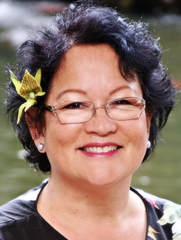 Shirley Enebrad is a Certified Grief Recovery Specialist with 25 years of experience. For her many years of work with pediatric cancer patients and those grieving the loss of a loved one, she received the Jefferson Award for Outstanding Public Service and the Angel of Hospice Award. She is the author of Six-Word Lessons on Coping with Grief and Six-Word Lessons for Surviving a Devastating Diagnosis. 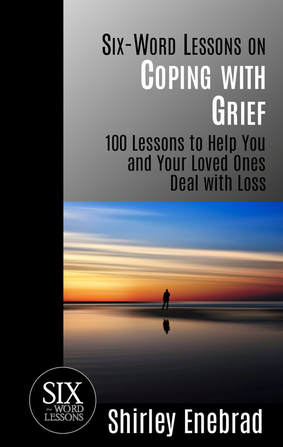 Today I happened upon an article about grief attributed to Christopher Walken. It struck a chord with me as he said essentially what I always tell people. You never stop missing the loved one who died; eventually, you get used to the big hole the death leaves in your heart, mind, and soul. Earlier this week, while visiting with my friend Wanda whom I have known since Jr. High, she brought up my first love Michael Poth. We were junior/senior high sweethearts. He was funny, charming, attractive, fun loving, and also very reckless. When I called him out on his daredevil antics and told him how stupid it was to ride a motorcycle on a dark country road with no light and with no helmet, Michael told me that he knew he would die young, so he was going to live it up. I couldn’t handle what I saw as self-destruction. I loved to have fun, too. I just didn’t want to see him die foolishly. We broke up. Several years later, his premonition came true when he broke his neck in a diving accident on a river that left him paralyzed from mid-chest down. Right after, I heard about it from his brother, I went to see him at the hospital. He was happy to see me. I yelled at him for being so careless. He said “carefree.” I said, “careless.” Now, you get a glimpse of our complicated relationship. Anyway, we hugged and cried. Then, he confided in me that he went out of his body and saw himself drowning below. His legs didn’t work after his head hit a boulder under the surface of the river. He consciously decided to inhale water to end his life, but he shot back into his body in time to look up into the light streaming down and saw a young man diving into the water to save him. He held on. Michael was afraid to tell anyone about his out of body experience. He didn’t want people to think he was crazy. It just so happened that I had read articles written by and about Elisabeth Kubler-Ross. I reassured him he was fine. I visited him at the hospital every day. He survived for several years afterward and spent almost all of that time in one of two hospitals. During that time, he learned to get around in a wheelchair, dress, and sort of take care of himself. all while he tried so hard to keep his spirits up. When the swelling eventually went down, his brain injuries caused seizures. He didn’t survive one of them. He was in a coma for eight months or so before his body finally shut down. While I grieved privately about Michael after he died I did not talk to anyone about our relationship and its ups and downs. I kept my memories to myself. Anyway, my little trip down memory lane with my friend Wanda affected me deeply. I cried on my drive home. It has been many years since he crossed over the rainbow bridge. I haven’t had any visits or dreams for a long while. But just talking about Mike sent me right back to our time together. There is still a big hole in my heart with his name on it. So, you truly never forget. You get used to not being able to see or touch him or her. Good memories are important. But I can also attest to the fact that sad ones are too. Honestly, he will never be forgotten. He was my first love. 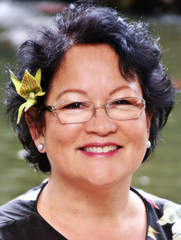 Shirley Enebrad is a Certified Grief Recovery Specialist with 25 years of experience. For her many years of work with pediatric cancer patients and those grieving the loss of a loved one, she received the Jefferson Award for Outstanding Public Service and the Angel of Hospice Award. She is the author of Six-Word Lessons on Coping with Grief and Six-Word Lessons for Surviving a Devastating Diagnosis. 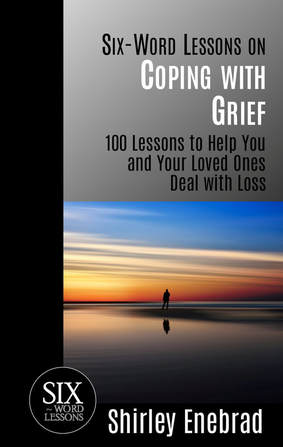 The other day I had a discussion with someone about our mutual friend who had been an on-air personality and reporter both radio and television for all of his adult life. When he aged out and lost both positions he was devastated. Storm clouds moved in and he became very unhealthy very quickly and seemed to give up. I was so sad to think his loss of identity hit him like a category 5 hurricane. The discussion got me thinking about the myriad of reasons why people grieve, and how some folks might not recognize grief and therefore do not get the help needed to weather their personal storm. I am a Certified Grief Recovery Specialist. The founders of the Grief Recovery Methods define grief as “the conflicting feelings caused by the end or change in a familiar pattern of behavior.” They cite a scale of stressors created by psychiatrists Thomas Holmes and Richard Rahe, which details the 40+ life events that are most liable to create feelings of grief, and in turn, cause illness and other health-related problems. The founders of Grief Recovery Methods switched the purpose of identifying stress to grief and added a few of their own.
Side note: I cannot say it enough, the so-called Seven Stages of Grief, were not created for grievers. Dr. Elisabeth Kubler-Ross came up with those stages when describing what she witnessed with patients who were dying. Her work with death and dying inspired the worldwide creation of thanatology courses in colleges and universities. She was at the forefront of the knowledge that dying patients should be treated with honesty, dignity and caring not stuck in the room at the far end of the hallway with the least amount of interaction with hospital staff. She started her work in the ’60s. Sadly my brother Bobby died exactly five years ago in 2014 and I watched in horror when he was moved into the last room on the right in the oncology unit. Nothing had changed. Ironically there was a huge banner out in front of this hospital proclaiming it the #3 hospital in the Nation for patient care. I was quite angry when I saw it. What a joke. (Full story for another time.) Anyway, I hope this list gives you insight into your own feelings and emotions as well as those around you who might be grieving and don’t even know it. There is recovery from life’s powerful storms. But, you have to see it and seek help to navigate your way through it. 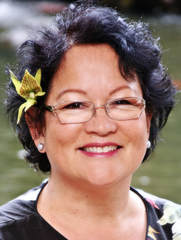 Shirley Enebrad is a Certified Grief Recovery Specialist with 25 years of experience. For her many years of work with pediatric cancer patients and those grieving the loss of a loved one, she received the Jefferson Award for Outstanding Public Service and the Angel of Hospice Award. She is the author of Six-Word Lessons on Coping with Grief and Six-Word Lessons for Surviving a Devastating Diagnosis. 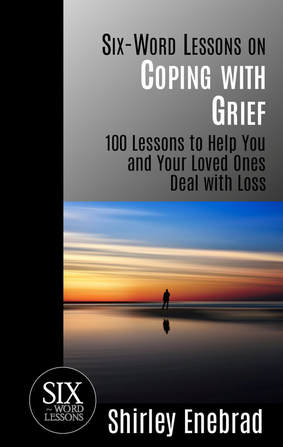 When you suffer a devastating loss either from death, divorce or abandonment it changes you. You may not even realize it. Our focus is loss from death. Suddenly you notice that you are not hanging out with the same people, and many of the people you have pulled away from were previously very good friends or relatives. You may be angry or grumpy more often than not. You may be weepy or tired or just plain sad. When the numbness of the loss starts to lighten up and you are paying more attention it can be that you realize your priorities have changed. Some folks whom you once thought you had so much in common with now seem juvenile in their behavior and not as interested in the world you now value more due to the shift in your priorities. The death of a loved one does that to you. You realize that partying, shopping excessively, drinking, or other things that occupied your time just seem trivial now. Loss changes you. It can be a wake-up call to be healthier and to take better care of yourself and others. It can make you see that you should spend your precious time doing more important activities such as putting yourself first…lose weight, stop bad habits, start working on your bucket list, enjoy life. That doesn’t mean you ignore your family or other obligations. It just means you get to set your priorities. Embrace the new you. Some folks want to get through their grief and go back to who he or she was before the death. That isn’t usually possible because you have evolved. Elisabeth Kubler-Ross loved to say, “Should you shield the canyons from the windstorms you would never see the beauty of their carvings.” It is so true. You are shaped by the storm you endured. A new you has been created. It is okay to say goodbye to people who no longer share your values. Think of it as outgrowing them. I liken it to when you switched from elementary to middle and middle to high school you probably didn’t keep the same friends. You may have kept a small core group but not everyone because as you grew older yours and their interests changed. No apologies needed. Wish them well but don’t hang on to people who ignored you when you needed support or who are more interested in numero uno. Cherish those who were there for you during your dark days. For what it’s worth, I give you permission to put yourself first so that you can focus on healing. Be the canyon. Enjoy the new you. 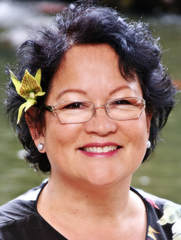 Shirley Enebrad is a Certified Grief Recovery Specialist with 25 years of experience. For her many years of work with pediatric cancer patients and those grieving the loss of a loved one, she received the Jefferson Award for Outstanding Public Service and the Angel of Hospice Award. She is the author of Six-Word Lessons on Coping with Grief and Six-Word Lessons for Surviving a Devastating Diagnosis. 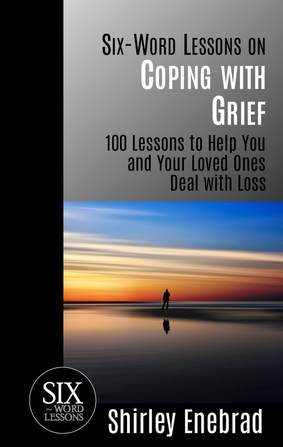 One of my clients just told me how much she hates people. I am pretty sure that is exactly what she is feeling. I applauded her truth telling. She went on to explain that it makes her feel like striking out when well meaning friends and acquaintances tell her how happy they are that she is on Facebook or the fact that she has a new man in her life… her kitten. As if a kitten replaces her dead husband. I am floored by the comments people make at times. I encouraged her (as I do most grievers I have interacted with) to write down her feelings, write letters to her husband and all of people who have ticked her off by saying selfish, unfeeling, thoughtless, insensitive, or just down right stupid things. I am hoping she will start a blog for widows expressing her truth. We talk about how so many people fake it through life and for whatever reason are not authentic about expressing how they are really feeling. It can be especially obvious when people try to cheer you on because the person is so uncomfortable interacting with you as you grieve. They want you to feel better because it affects them. How does that help the griever? It really doesn’t. So, my belief is that when someone asks how you are doing? Tell them honestly. “I am feeling ___________.” or “My life rather sucks at the moment because I am grieving.” “There is no time limit on grief.” “Even though I am here at work or out having a drink/dinner/fun, or wherever does not mean I am not still grieving.” “I am smiling on the outside but shattered on the inside. Please be careful with me.” Please remember to put yourself first. 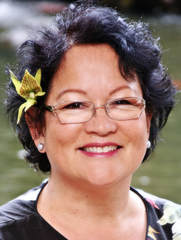 Shirley Enebrad is a Certified Grief Recovery Specialist with 25 years of experience. For her many years of work with pediatric cancer patients and those grieving the loss of a loved one, she received the Jefferson Award for Outstanding Public Service and the Angel of Hospice Award. She is the author of Six-Word Lessons on Coping with Grief and Six-Word Lessons for Surviving a Devastating Diagnosis. 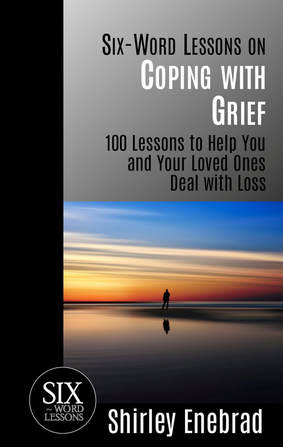 When your memories start to fade and get blurry you might feel as if you are betraying your loved one who died. I sometimes cannot remember if a cute story about my son was really his experience or his sister’s. Post menopausal brains aren’t the most reliable with our precious memories. Men, you are quite fortunate that don’t go through actual menopause. I have a fairly good memory most of the time but babyhood stories do get jumbled up. My advice to you, even if your child is healthy – write down cute stories and things you want to be able to tell his or her children some day. Cherish the feelings inspired by each story. When it comes to memories fading about a parent, grand parent, spouse, sibling or friend it can be as distressful. I write letters to the folks who died telling my favorite qualities each possessed and describing the most memorable times we shared. Then, I keep it on the cloud. You can refer back later. Don’t feel badly if your memory isn’t what it used to be. Honestly, I hope you don’t beat yourself up about it. It is normal as our brains age. But learn from my experience. If you have other ideas about how to keep your memories from fading, shoot me an email. Be well, Shirley 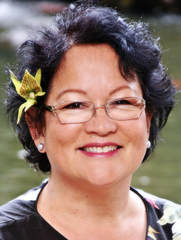 Shirley Enebrad is a Certified Grief Recovery Specialist with 25 years of experience. For her many years of work with pediatric cancer patients and those grieving the loss of a loved one, she received the Jefferson Award for Outstanding Public Service and the Angel of Hospice Award. She is the author of Six-Word Lessons on Coping with Grief and Six-Word Lessons for Surviving a Devastating Diagnosis. 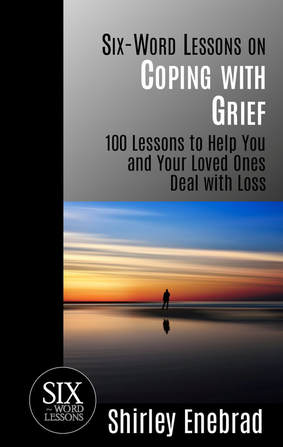 When your loved one crosses over the rainbow bridge it hurts. Holidays are rough for the first few years. I think birthdays are painful forever. You always have the compulsion to add another year of “what ifs?” and “if only (s).” My son’s birthday is coming up in a few days and even though he has been out of his physical body four times longer than he was with me, another birthday without him still causes my heart to ache. Cory’s cousin just crossed over the rainbow bridge three months ago. They were only a few weeks apart in age. I know Cory was there along with his uncle Terry to greet Travis with open arms. I thought of Travis on his birthday a few weeks ago. He was able to grow up and get married but he suffered from a painful disease for most of his life. That could not have been easy. He fought the good fight. My heart goes out to his family but especially to his mother. Age does not matter. He will always be her baby boy. When my brother’s birthday is approaching I start feeling sad. I miss him like crazy but my sadness is more for his grieving widow and his children. He should still be here with them. Then, that sadness turns into anger about the crappy medical treatment he received. A few days ago my friend’ Elle’s sweet mother Frances died. She had been to the hospital several times in the past week. Both times the hospital sent her home. The last time, she passed the very next day! That’s when Elle found out her mother had stage 3 kidney disease and stage 4 liver cancer. I am still stunned. Were they just being callous because of her age? Did they really miss those two BIG diagnoses? My grandson came home with a similar story about his friend’s grandfather getting blown off by the same hospital. His family was told not to bring him to the ER again, they would turn him away. Something terrible was said such as, “Get him a burger and let him die happy.” Really? Who says that to a frightened family? Does this hospital staff think that too many birthdays means people are expendable? (It sounds like a good news story. I may pass it along to a local journalist). Yes, birthdays are hard whether the person you cared about died years ago or recently or whether the person was nine or ninety. I don’t cry anymore but the longing and the missing are still part of my thoughts and inner well-being. So, just know that when the birthday of your loved one is approaching be ready for a shift. It is normal to feel extra sensitive and sadder than you have lately. When the day actually gets here, you will marvel at how well you did and then try to tuck away those feelings until the next one approaches. It might help to celebrate his or her birthday in some way. You can bake a cake, donate flowers in his or her name to your church if you have one, or drop off food to the local food bank, donate to a favorite charity, invite loved ones to write a favorite memory down and send to you, ask for photographs, buy a bouquet of flowers at the grocery store and gift it to a random person in the parking lot, or even just pay for the order of the car behind you in the Starbucks drive-thru. 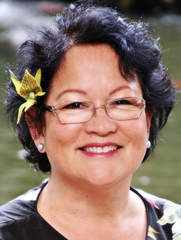 Shirley Enebrad is a Certified Grief Recovery Specialist with 25 years of experience. For her many years of work with pediatric cancer patients and those grieving the loss of a loved one, she received the Jefferson Award for Outstanding Public Service and the Angel of Hospice Award. She is the author of Six-Word Lessons on Coping with Grief and Six-Word Lessons for Surviving a Devastating Diagnosis. 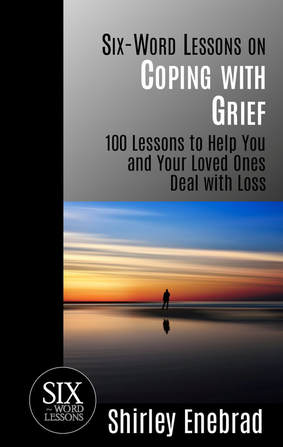 When a loved one dies, grief can be compounded by how others react and treat you. It is important to be careful about what you say. I have recently been talking at length with a newly widowed woman I know about the things people say to her. Some people try to be supportive and kind. More have the “open mouth and insert foot” disease. For example, all those folks who say, “I know how you feel.” Don’t. “You will meet someone else.” Not even a thought. “You are still young….” or “At least you didn’t have little kids.” The “at least” statements are particularly thoughtless. Anything you might want to say that starts with “at least” will only cause more pain. Stop yourself. We will call her Camille to protect her identity. It has been weeks since Camille’s husband died suddenly. She is amazed by which of her friends have been totally absent and by the ones who stepped up to offer support. That is painful enough but the ridiculous things people have said is more surprising. Camille ran into a co-worker who asked how she was doing. When she shared that her life was quite awful at the moment, the person replied, “still?” OMG I cannot believe how this person could think a few short weeks would be enough time for someone who just lost the love of her life to be recovered. Apparently this person has never lost a loved one or has never cared deeply enough to understand the level of insensitivity he just inflicted. Another colleague asked her how her “vacation” was going. Vacation? She hasn’t been able to go back to work yet. She had no idea that her co-worker equates her time off to grieve as a vacation. who would want to go back to an environment where people have no compassion or understanding of how to be supportive. It makes it that much harder. When my son died I was told that I could have more children. At least he was no longer suffering. Well, at least you had him for nine years. God never gives you more than you can handle. It’s a good thing you are so strong. And after three or four months an acquaintance who had four children of his own, was astonished that I was still sad that my little boy had died. Still? I am still bitter after all these years. to quote Forrest Gump, “Stupid is as stupid does.” If you are the victim of such hurtful non-helpful statements, please speak up. You will feel better and you might just teach the person a lesson so they don’t make the same monumentally awful mistake again. Speak up and let your friends and family know how their absence, lack of support or unhelpful statements make you feel. Your grief, your feelings, means you have the right to be heard. 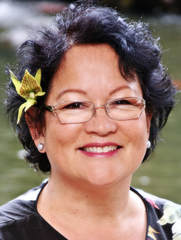 Shirley Enebrad is a Certified Grief Recovery Specialist with 25 years of experience. For her many years of work with pediatric cancer patients and those grieving the loss of a loved one, she received the Jefferson Award for Outstanding Public Service and the Angel of Hospice Award. She is the author of Six-Word Lessons on Coping with Grief and Six-Word Lessons for Surviving a Devastating Diagnosis. 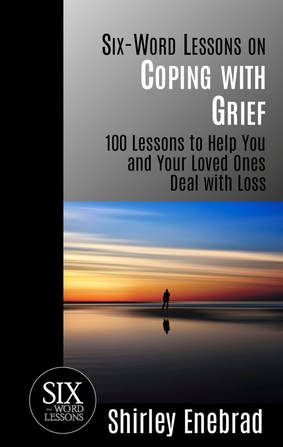 I recently had a visit from one of my best friends. We have kept in touch since 8th grade. That was a long time ago. People are amazed at how well we nurtured our friendship. When Cory was really ill Michael helped me get enough money together to fly down and spend a few days recharging my batteries with him in Las Vegas. He did that many times. Michael also met the kids and I in San Diego and LA a few times when we were down visiting Disneyland and relatives. He took us to the La Brea Tar Pits. Great memories. We wrote to each other. The kids I baked Christmas cookies every year and mailed them to wherever Michael was living at the time. He was so supportive throughout Cory’s illness. And in happier times, I asked Michael to be my best man in my wedding 30 years ago. What a great friend he still is to this day. Michael was looking at the photographs I have on my hallway wall. His voice caught when he noticed my son’s photo right there with the rest of my family. He asked if I thought about him every day. I replied, “yes, every single day. I miss him. Sometimes it feels like he was just here and other days it feels like a lifetime ago.” We both teared up. That’s the way it is with grief though. When someone you love dies there is a void in your heart forever. You get used to the pain and you kind of get used to not seeing him or her after a while. But you miss the ability to interact with a physical being and I personally miss speaking with my son, my mom, my brother, and all those who have already crossed over the rainbow bridge. I am sure that is true for everyone. Although I have to admit, I still talk to them. In my grief workshops I always encourage folks to write letters to the person they are grieving on that day. It really does help to get your thoughts and feelings down on paper. I also encourage people to journal about their grief journey. And if they are inclined to write a poem about the qualities of the deceased loved one. It can be a small yet powerful tribute to him or her too. The easiest is a “list” poem. For example, mine says things such as, “Cory was funny. Cory was mischievous. Cory was a great big brother. Cory loved to play soccer. Cory loved dressing up for Halloween. Cory was brilliant. Cory was courageous. Cory loved me. Cory was my son.” Try it – writing down the words that describe your feelings about and to your loved one/s is powerful and it just might help you. I hope it does. Nurture your friendships. Always let those you love know how special they are to you. Use your words. You can always use a good friend in happy times and sad ones too. 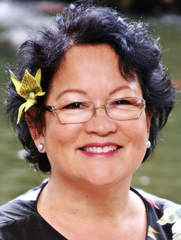 Shirley Enebrad is a Certified Grief Recovery Specialist with 25 years of experience. For her many years of work with pediatric cancer patients and those grieving the loss of a loved one, she received the Jefferson Award for Outstanding Public Service and the Angel of Hospice Award. She is the author of Six-Word Lessons on Coping with Grief and Six-Word Lessons for Surviving a Devastating Diagnosis. |
See the Authors!
All
|

 RSS Feed
RSS Feed